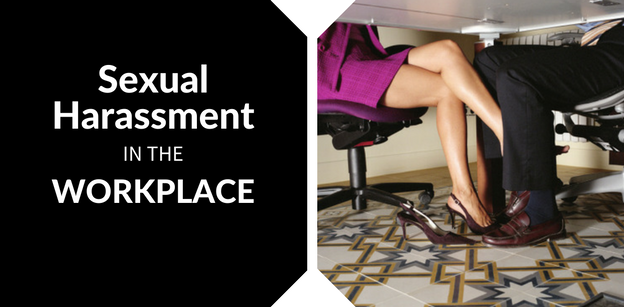The short answer: Yes.
Many people believe that sexual harassment in the workplace is a thing of the past; something that only occurred back in the Mad Men era of yesteryear. But the reality is that sexual harassment in the employment setting is still remarkably prevalent, and may even be more common now in the technology age. Sexual harassment is not limited to male employees harassing female employees; it can certainly go both ways. More recently, same-sex sexual harassment has become a more common complaint, although this may be due to the changes in the interpretation of the employment discrimination laws. While many employers have attempted to implement policies to better educate employees and prevent sexual harassment, the problem certainly persists.
Harassment Claims Against Roger Ailes
One of the most glaring recent examples of the widespread nature of sexual harassment in the workplace is the numerous accusations of sexual harassment that have been made against the now-former CEO of Fox News, Roger Ailes. At this point, numerous women have come forward with various allegations of sexual harassment by Mr. Ailes following a lawsuit that was filed by former Fox News anchor, Gretchen Carlson. Fox News took the appropriate step of removing Mr. Ailes as CEO, and they are now dealing with a massive investigation into what took place, who knew about the harassment, and whether certain actions were taken to cover it up. While it is not all that common for such a high profile case to be so widely publicized, this sort of discriminatory behavior is still occurring all across the country and in all types of jobs.
Another very interesting observation from the sexual harassment allegations at Fox News is the varying responses from political figures and members of the public. As with allegations of sexual assault, there is oftentimes a sort of ‘blame the victim’ mentality. That is why so many victims of sexual harassment are afraid to come forward. Not only are they afraid that their story may not be believed, but in the workplace, they are fearful of retaliation and possibly losing a job.
Donald Trump’s Statements on Sexual Harassment
For example, current Republican Presidential nominee, Donald Trump, recently spoke out in response to Ms. Carlson’s sexual harassment lawsuit. In response to a question being asked about how he would feel if his daughter, Ivanka, dealt with similar issues of sexual harassment in the workplace, Mr. Trump stated to USA Today that he “would like to think she would find another career or find another company if that was the case.” The clear implication from his statement being that it is the victim, and not the harasser, who should have to leave his/her job if they are experiencing sexual harassment. These types of responses to allegations of sexual harassment in the workplace are both demeaning to the victim and tend to aggravate the problem.
So what do you do if you experience sexual harassment in the workplace?
First, you want to make sure that you voice your concerns to your employer.
- Send an email to your supervisor (if he/she is not the harasser) or human resources.
- You want to make sure that your complaint is documented. Unfortunately, there are not always witnesses or evidence of the harassment (text messages, emails, voice messages, etc.). Do what you can to document the behavior, whether that is taking notes of when things happen or recording sexually harassing comments on your cell phone (in Texas you can legally record a conversation if you are a party to that conversation – you do not have to tell the other person that you are recording it).
- If you are not getting an appropriate response from your employer, it may be time to reach out to an employment attorney and discuss your legal options.
Ultimately, if the sexual harassment continues, or if you are retaliated against for making a complaint, you have the legal right to file a Charge of Discrimination with the Texas Workforce Commission and Equal Employment Opportunity Commission.









